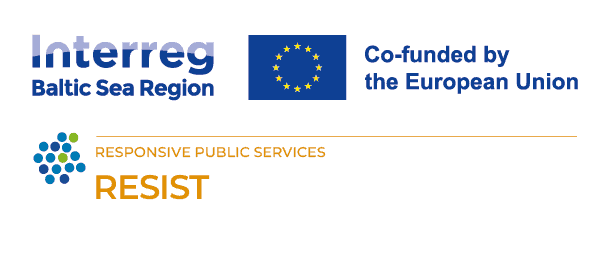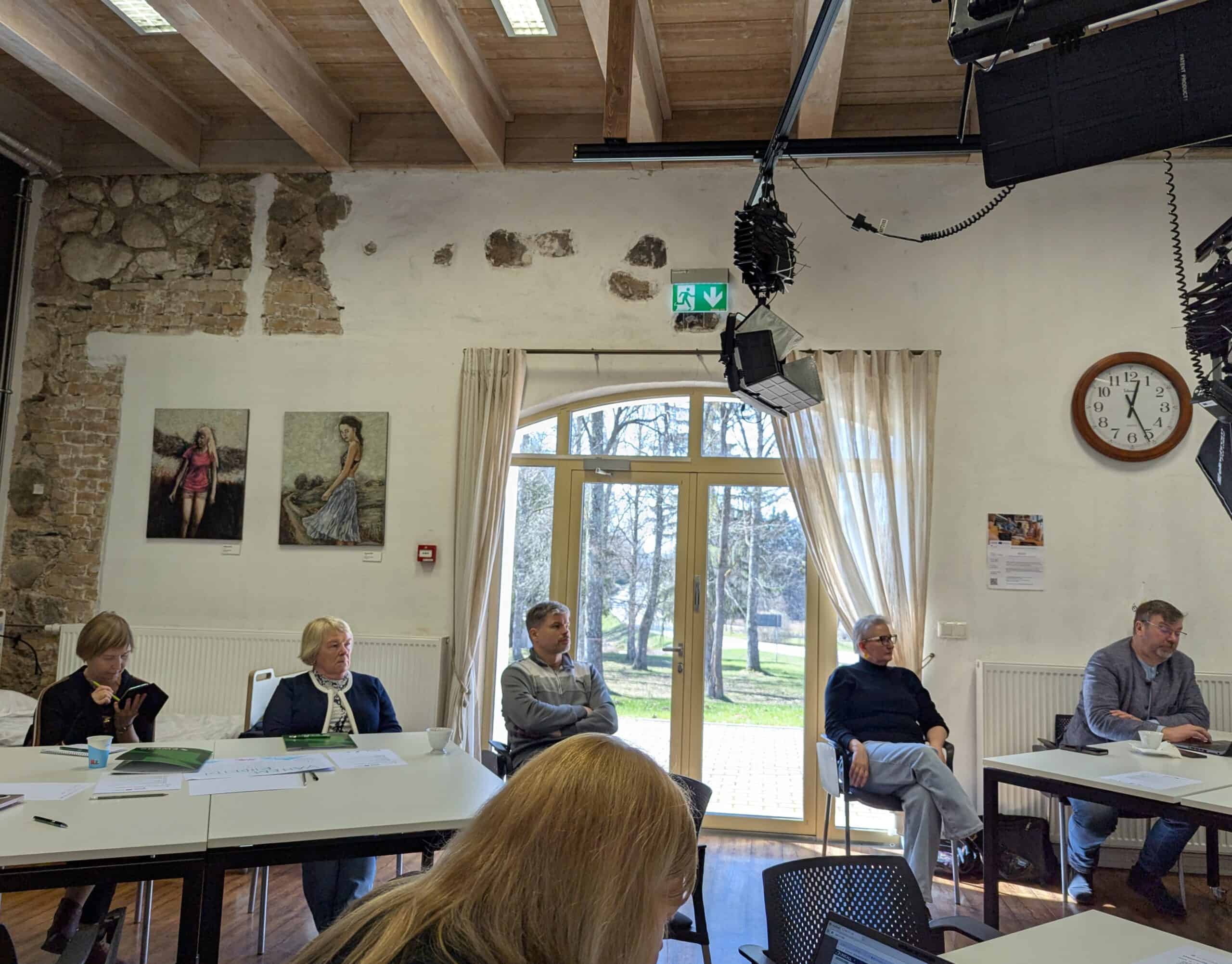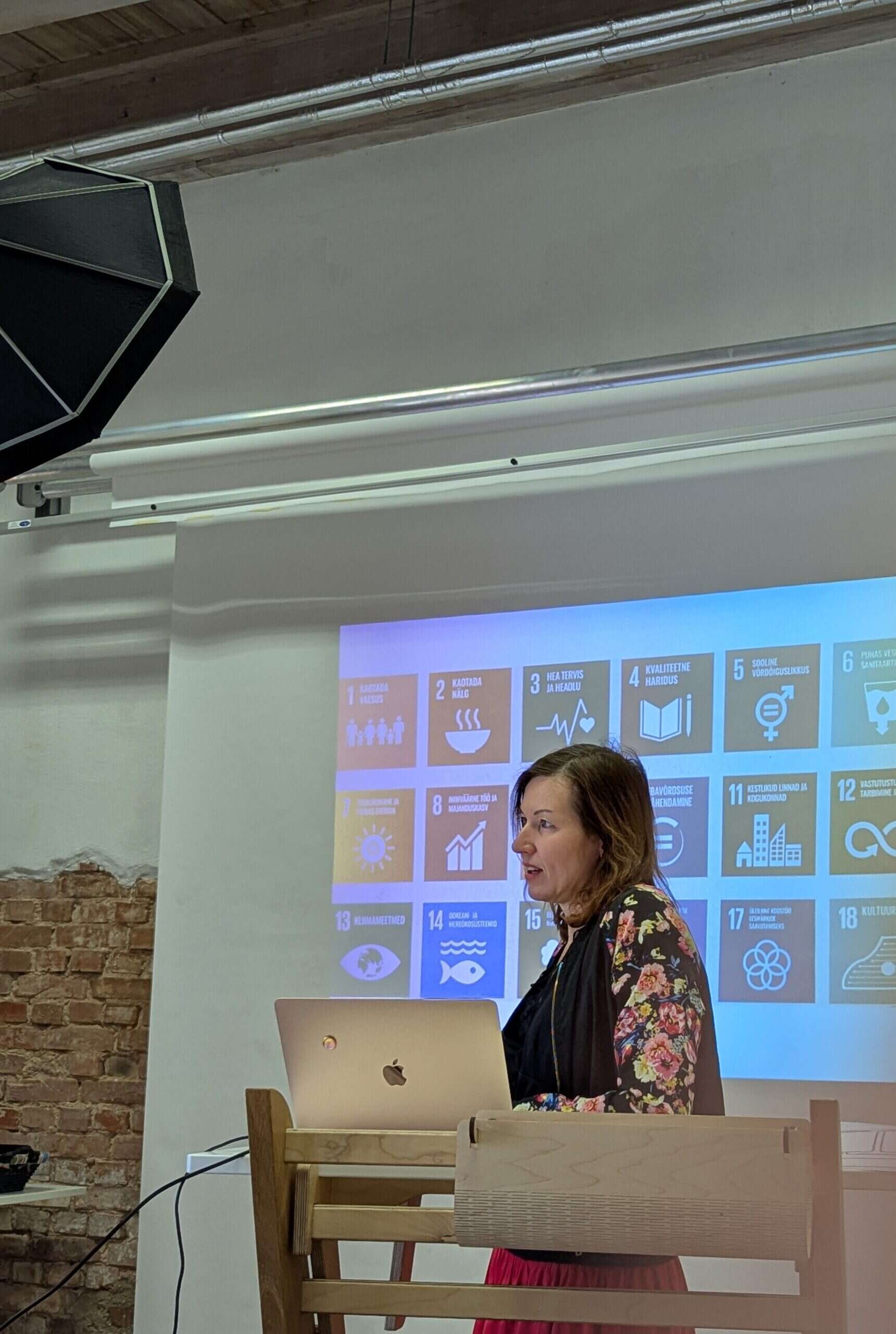
Regional Ecosystems for Social Innovation and Social Transformation
RESIST
Successfully implemented Train-the-Trainers in Võru County
15 May 2025
The RESIST Project continues to strengthen social innovation capacity across the Baltic Sea region, and our recent pilot training session of trainers in Estonia was a powerful example of this mission in action.
Empowering Entrepreneurship Trainers in Võru County through Social Innovation
The RESIST Project continues to strengthen social innovation capacity across the Baltic Sea region, and our recent pilot training session of trainers in Estonia was a powerful example of this mission in action.
Over two dynamic days, we welcomed participants from the Development Centre of Võru County, Võru County Education and Technology Centre (EWERS), TSENTER – The Centre of Competence for Wood Processing and Furniture Manufacturing, Unemployment Office, local NGOs, as well as representatives from regional secondary schools. Representing trainers and consultants working across various education levels, this group came together to deepen their knowledge and skills in the field of social innovation and impact entrepreneurship.
A Deep Dive into Innovation Tools and Strategies
The aim was to pilot the models that is co-created by RESIST project partners for the Social Innovation and social entrepreneurs trainers. This was the second time the training took place in Võru County and this time the training followed an intensive and interactive agenda designed to introduce practical tools and foster hands-on learning:
-
Understanding Social Innovation and Social Innovators through Personas and the Double Diamond model
-
Defining Problems and Generating SI Ideas with Purpose
-
Deep dive into exploring Funding Tools for Social Innovators
-
Building Sustainable Models with the Social Enterprise Canvas
Participants engaged in discussions, shared feedback on their prior work, and applied new concepts to their own initiatives, linking local efforts with broader global goals.
The participants were asked to compile their own portfolios prior to the training, where they described the ways they were using the learnings and the tools in their own teaching. The portfolios received feedback during the training.
Voices from the Training
The feedback from attendees reflected both personal growth and professional relevance:
“The training helped me to better connect the ideas and concepts I already had in my head. I especially appreciated how the broader global context – like the UN’s development goals—was brought in. It reminded me to think beyond local impact and consider how my work contributes to national and global change.”
“I now have a better understanding of the core concepts of social innovation and impact entrepreneurship. This will definitely help me as I work on future projects.”
When asked what knowledge they plan to apply in their work, participants shared:
-
“I’ll use the tools we practiced for deeper analysis of social innovation initiatives.”
-
“All topics were useful—I can apply them directly to designing new training programmes.”
-
“The practical tools taught, especially around idea generation and problem definition, were the most valuable for me.”
Looking Ahead
This training not only equipped participants with tools and frameworks—they left with renewed purpose and broader perspectives. As these trainers and consultants return to their respective roles, the impact of this knowledge will ripple out across the communities they serve.








